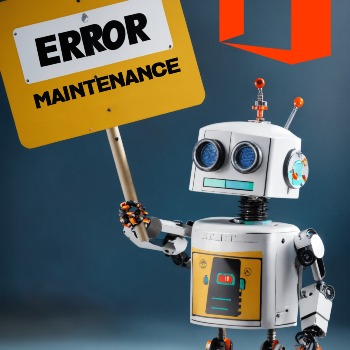How to improve your website ranking with the help of on-page SEO
In the competitive landscape of online presence, boosting your website's ranking on Google is paramount. While there are numerous factors contributing to search engine optimization, this article will delve into the intricate world of on-page SEO, a fundamental aspect often overlooked by many.
What is On-Page SEO?
On-Page SEO refers to the optimization of individual web pages to enhance their visibility and ranking on search engines. It involves factors directly controlled by the website owner, making it a powerful tool for improving search rankings.
SEO-friendly content creation
Keyword Research and Integration
To catapult your website up the ranks, meticulous keyword research is indispensable. Identify the terms and phrases relevant to your content and strategically integrate them into your titles, headings, and throughout your articles. This ensures that your content aligns with what users are searching for.
Magical Meta Descriptions
Crafting compelling meta descriptions is an art. These concise snippets not only summarize your content but also entice users to click through. A well-optimized meta description can significantly boost your click-through rate, signaling to search engines that your content is relevant and engaging.
Technical Optimization
Website Loading Speed
Search engine results are greatly impacted by the speed at which your website loads, especially in the rapid digital age where customers want rapid access to information. Because Google values user experience above all else, a website that loads slowly may have higher bounce rates, which may impact your website's ranking in the search results. We'll explore the key factors that go into increasing page speed for better rankings.
The user experience is a crucial factor in SEO. A slow-loading website can lead to high bounce rates, negatively impacting your ranking. Optimize your images, leverage browser caching, and consider a reliable hosting provider to ensure swift page loading times.
Mobile Friendly
Given the surge in mobile users, mobile responsiveness is non-negotiable. Google prioritizes mobile-friendly websites in its rankings. Ensure that your website is not only visually appealing on mobile devices but also functions seamlessly.
Enhancing User Experience
User-Friendly Navigation
Streamlining your website's navigation is imperative. A well-organized site structure aids both users and search engines in understanding your content. Implement clear menus, internal links, and breadcrumbs for a user-friendly experience.
High-Quality Content
The adage "content is king" remains relevant in the SEO realm. Produce high-quality, informative, and engaging content that addresses user queries. Regularly update your content to reflect industry trends, demonstrating to search engines that your website is a reliable source of information.
Utilizing Header Tags
The Power of Header Tags (H1, H2, H3...)
Header tags not only structure your content but also provide a hierarchy that search engines use to understand the context of your information. Ensure your main title (H1) reflects the primary focus of your page, followed by relevant subheadings (H2, H3, etc.) to organize your content effectively.
Image Optimization
Alt Text and File Names
Images are a valuable asset to your content, but they need proper optimization. Assign descriptive file names and utilize alt text to provide context to search engines, aiding in better comprehension of your content. This not only enhances SEO but also improves accessibility for visually impaired users.
Frequently Asked Questions (FAQs)
Q1: How long does it take to see improvements in website ranking with on-page SEO?
A1: The timeline for seeing improvements in website ranking through on-page SEO varies. Generally, significant changes may take a few weeks to a few months, but continuous optimization is key for sustained results.
Q2: Can I optimize my website for multiple keywords on a single page?
A2: While it's possible, it's advisable to focus on one primary keyword per page to maintain content clarity and avoid keyword stuffing. Create separate pages for additional keywords for optimal results.
Q3: Is mobile responsiveness really that important for SEO?
A3: Yes, mobile responsiveness is crucial for SEO. With the increasing number of mobile users, Google prioritizes mobile-friendly websites. A mobile-responsive design enhances user experience and positively influences rankings.
Conclusion
In the intricate dance of SEO, on-page optimization emerges as a key player. By mastering the art of crafting SEO-friendly content, technical optimization, enhancing user experience, utilizing header tags effectively, and optimizing images, you set the stage for a website that not only climbs the search engine ranks but also provides immense value to your audience.
Remember, SEO is an ongoing process. Regularly audit and update your on-page elements to stay ahead in the dynamic digital landscape.



